How to Negotiate with Americans
Cross-Cultural Negotiations: How to Negotiate with Americans – Strategies for Success
Negotiating with Americans requires speed, clarity, and confidence. Unlike cultures that emphasize relationship-building before deal-making, Americans are results-driven, transactional, and willing to move on quickly if negotiations stall.
If you expect long discussions, hierarchical decision-making, or indirect communication, you may struggle. But if you understand their fast-paced, direct, and opportunity-seizing approach, you can adapt, negotiate effectively, and secure better deals.
This guide will help you understand how Americans negotiate, what they expect, and how to adjust your strategy for success.
1. Understanding the American Negotiation Style
American business culture is shaped by individualism, competition, and efficiency. Key characteristics of an American negotiator include:
- Time-conscious – They value speed and will expect negotiations to move quickly.
- Straightforward – They are blunt, direct, and prefer clear communication over subtlety.
- Competitive – Americans view negotiation as a game to be won rather than a collaborative process.
- Data-driven – Emotional appeals carry little weight; they expect facts, numbers, and ROI arguments.
- Risk-takers – They are more willing to make quick decisions compared to many other cultures.
If you don’t match their pace, style, and expectations, you risk losing their attention or appearing indecisive.
2. How Americans Approach Business Negotiations
Direct Communication
✔ Americans are not subtle. Expect blunt questions like:
- “What’s your bottom line?”
- “How much profit are you making at this price?”
- “Let’s be honest—what’s the real number?”
✔ They dislike vague or evasive responses. If you sidestep questions, they may see it as dishonesty.
✔ They expect immediate clarity on pricing, contract terms, and deliverables.
Strategy: Answer directly and concisely, but keep some flexibility for later concessions.
Example:
- Instead of: “Our pricing structure is designed for long-term partnerships.”
- Say: “Our base price is $100,000 per year, but we can adjust terms based on volume.”
Tip: If you need time, don’t avoid the question—say:
- “That’s an important point. Let me review the numbers and get back to you shortly.”
Speed and Decision-Making
✔ Americans believe time is money. They prefer to reach agreements quickly and move on to execution.
✔ While other cultures may take weeks or months to finalize deals, Americans may expect a decision within days.
✔ If you delay, they may assume:
- You’re not serious about the deal.
- You’re trying to stall for a better offer.
- You lack decision-making authority.
Strategy: Be prepared to move fast. If you need more time, say:
- “I need to review the details internally before confirming.”
- “Let’s agree on key terms now and finalize the paperwork by [specific date].”
Example:
If an American buyer says, “Can we close this today?” instead of resisting, respond:
- “We’re close. Let’s outline key points, and I’ll have final confirmation by tomorrow.”
Tip: Always have authority or a clear timeline for final decisions. Avoid saying, “I need to check with my team,” too often.
Negotiating with Facts, Not Emotion
✔ Americans expect data-driven arguments. They will not respond well to emotional appeals or vague promises.
✔ They want to see:
- ROI calculations
- Market comparisons
- Case studies or proof of success
✔ If you focus too much on relationship-building before discussing business, they may lose patience.
Strategy: Present clear, quantifiable benefits of your proposal. Examples:
- Instead of: “This product is of the highest quality.”
Say: “This product reduces defects by 28%, saving you $100,000 per year.” - Instead of: “Our service is trusted globally.”
Say: “We have a 96% customer retention rate and serve Fortune 500 clients.”
Tip: Have charts, metrics, and financial projections ready. Americans will expect numbers to back up your claims.
The Question Americans Always Ask: “Have We Got a Deal?”
✔ Americans will push for a quick commitment and may ask:
- “Can we shake on this?”
- “Can I take this as a yes?”
✔ If you agree too quickly, they might assume they could have gotten a better deal.
Strategy:
- Instead of saying “Yes” immediately, pause and say:
- “We’re close, but I’d like to clarify [one last detail].”
- “This looks good, but I need to check [X] before finalising.”
- This maintains leverage and prevents buyer’s remorse.
Example:
If an American supplier offers a contract at $500,000 and asks, “Can we confirm?”
- Instead of saying “Yes”, respond:
- “This is promising. I need to confirm internally. Let’s discuss final adjustments first.”
Tip: Never agree on the spot unless you’ve secured the best possible terms.
3. Tactics That Work with American Negotiators
1. Be Assertive, Not Passive
✔ Americans respect confident, self-assured negotiators. If you seem uncertain or hesitant, they may take advantage.
✔ They will challenge you—push back confidently and defend your position.
Strategy: Use firm but collaborative language:
- “I understand your position, but let’s look at a structure that works for both of us.”
- “I can agree to this if we adjust [X] in return.”
Tip: If an American is pushing hard, respond with:
- “Let’s slow down and evaluate both sides to make sure this works long-term.”
2. Expect Tough Questions and Justify Your Price
✔ Americans will probe your pricing and may say:
- “Why is this so expensive?”
- “What’s your lowest possible price?”
Strategy: Respond with value-based framing:
- Instead of: “That’s our standard price.”
Say: “This pricing reflects [specific benefits] that save you [cost/time].”
Tip: Always have a reason for your price—never say “It’s just our policy.”
3. Be Ready for the Hard Close
✔ Americans push hard at the end of negotiations.
✔ They might ask for last-minute concessions to test your flexibility.
Strategy: If they try this, push back firmly:
- “We’ve already negotiated the best deal—let’s finalise what we agreed.”
- “I can offer this adjustment, but only if we confirm today.”
Tip: Stand firm in the final stages—don’t let last-minute pressure force unnecessary concessions.
Final Takeaways: How to Win Negotiations with Americans
✔ Be clear, direct, and assertive – Americans appreciate straightforward communication.
✔ Move quickly – Slow negotiations may cause them to walk away.
✔ Use data-driven arguments – Emphasise numbers, performance, and ROI.
✔ Push back strategically – Never agree too fast; use silence and counteroffers to maximise value.
Want to refine your negotiation skills and close better deals? Learn advanced strategies with Business Negotiation Academy.
Recent Posts
How to Use the Decoy Effect in Procurement Negotiation
In procurement, smart framing beats force. This article breaks down how to use the Decoy Effect—a behavioural science tactic—to guide suppliers toward your...
How to Negotiate in India: A Strategic Guide for Business Success
India is a land of immense opportunity—and complexity. To succeed in business negotiations here, foreign professionals must understand the nuances of hierarchy, relationship-building,...
The Contrast Principle in Procurement Negotiation
In high-stakes procurement, perception is leverage. This article explores how elite buyers use the contrast principle to frame negotiations, control supplier expectations, and...


